- Home
- Cory Doctorow
Homeland Page 7
Homeland Read online
Page 7
So that was my MakerBot, and the plan had been—what else—to mod it to print in playa dust, using melted sugar as a fuser. Sugar’s strong—melt some caramels and brush them onto a 2 × 4 and clamp another 2 × 4 to the spot overnight while the “glue” sets and you’ll get a joint that’s so strong the wood will tear apart before the glue gives. But sugar is also water-soluble, so when I was done, my playa-dust prints could be dissolved in water. “Leave no trace,” just like Burning Man principle eight says. I did some test runs, using powdered drywall that I ground up in an old hand-cranked coffee grinder, and I had it working pretty well when I disassembled the MakerBot and packed it up to take to the playa.
That was Secret Project X-1, and I swear it worked like a charm when I left San Francisco. I have no idea why it failed so miserably when we got to Black Rock City. The solar panels tested out good, and I borrowed a multimeter from another camp and checked every circuit and contact, and everything seemed to be in working order. But the stubborn, evil bastard refused to even turn on.
Even bloodied and bruised and traumatized and terrorized, I still felt a pang when I packed away X-1 again. I had this incredible plan to 3D print the most amazing shapes and objects out of playa dust—fanciful animals, busts of famous monsters, all the best junk from Thingiverse, the online library of free 3D forms. I was going to be the best, coolest, cleverest burner in the history of the playa. A legend. Instead, I was the guy who sweated and swore at his invention for twenty-four hours straight before his girlfriend went upside his head and told him to stop swearing at his printer and get out there and enjoy Burning Man. She was totally right, and everyone liked my cold brew, but man, it hurt to pack away X-1 without having printed a single widget.
“You’ll get it working next year,” Ange said. “Don’t worry.” She looked off at the cloud of dust rising from the playa as fifty thousand burners packed up and got ready to turn Black Rock City back into Black Rock Desert (though there’d be cleanup teams staying behind for a few months going over the whole desert, erasing the final signs of human occupation). “We have to go.”
Chapter 5
We hardly spoke on the long drive home. Our ride, Lemmy—a guy in his forties who had been coming to Burning Man for twenty years—told us that Exodus was usually like a party, with people getting out of their vehicles between pulses and hanging out, dancing, chatting. But after the night’s explosion and injuries, no one wanted to party down. The hourly pulse of cars released onto the winding road to Reno was like a funeral procession, and it was no better once we got to the little Indian reservation towns on the way to Reno and stopped for gas.
That matched my mood perfectly, to tell the truth. I was all beat up, and the painkillers made me groggy, while the jerking and jouncing of the car on the roads kept me from sleeping. Ange took over the driving in Reno, and I finally found my way into sleep, waking up briefly when we gassed up again in Sacramento, and then the next thing I knew, I was back home on Potrero Hill, at my parents’ front door.
I kissed Ange good-bye and dragged my knapsack and duffel bag to the front door, fumbling my key into the lock. I had planned on calling my parents from Reno to let them know I was on the way, but sleep had taken precedence, and now I was heading home with a face that looked like it had been through a meat grinder and a pocket full of government secrets that were being hunted by a ruthless torturer. Hey Mom, hey Dad! Funny thing, you’ll never guess what happened to me while I was out in the middle of the desert. Yay, this was going to be f-u-n.
The house was a mess. That was the new normal. It started when Dad lost his job and started spending a lot of time at home. Who knew he was such a slob? Mom refused to pick up after him (yay, Mom!), but she also turned out to have a high grodiness tolerance. By the time she lost her job, well, the place was already a pit. And it didn’t get better after that.
I stepped over the scatter of shoes by the front door and dragged my junk through a pile of old newspapers, knocking them over and sending them slithering to the floor. “Hi, guys,” I said. I wished that I’d be able to get my butt upstairs and into bed before I had to hold down a conversation, but I knew it wasn’t very likely.
“Marcus!” Mom called from the living room. “We were so worried!” And one second later, there she was in the hallway, and gasping at my face. “Oh my word,” she said, her British accent and funny little Britishisms ramping up the way they did when she was stressing.
“It’s okay, Mom,” I said. “There was an accident at Burning Man and—”
“We heard all about it,” she said.
Duh. It hadn’t even occurred to me that the stuff that happened at Burning Man would be news in the rest of the world. San Francisco was the birthplace of Burning Man, so of course they’d heard. And then they hadn’t heard from me. Christ, I was a rotten son.
“I’m sorry,” I said. “Really. It’s better than it looks. I just had some painkillers before we left and fell asleep or I would have called—”
Now Dad was in the hallway, too. “God, Marcus, what happened?”
I closed my eyes, took a deep breath. “Can I make you a deal? How about if I tell you what happened really quickly, then I go have a shower and sleep, and then we can talk it over?”
This is what I love about my parents: they both looked at each other with their eyebrows up, like, That sounds reasonable to me, and nodded, and said, “Okay,” and then gave me a crushing hug that felt so good, even if I was so tired I could barely stay vertical.
I unlaced my boots—bending over caused a fresh headache to blossom right behind my eyes—and kicked them off with two little puffs of playa dust. Dad cleared a pile of books off the sofa while Mom made tea for me and her and coffee for Dad (I’m embarrassed to say that despite all my efforts to educate him, Dad still drank—ugh—instant). I told them the story as quickly as I could, leaving out the part about Masha and Zeb and Carrie Johnstone. Here, back in San Francisco, it all seemed, I don’t know, remote? Like something that happened to someone else, or something I’d read about in a book. Maybe it was the painkillers, or Ange’s (understandable) skepticism, but I found myself questioning my own memories.
“Oh,” I said, as I was finishing up. “Someone offered me a job, too! Someone running for senator who needs a new webmaster or something. I’m going to drop them a line in the morning.”
“That’s fantastic, sweetie,” Mom said, looking like she meant it. Dad said some nice things, too, but I could tell that he was thinking about the job he didn’t have. After my trial and conviction—for stealing Masha’s phone, of all things—he “mysteriously” found that he couldn’t get his security clearance renewed. So that meant that a lot of his consulting gigs dried up. We’d been worried, but not totally freaked, because at least he had his adjunct professorship at UC Berkeley. But then California went broke—really, really broke, not like all the other times it had gone broke as I was growing up—and the UC system got its budgets slashed to practically nothing. Adjuncts had been the first to go. And of course, when he lost his job, I lost my discount on tuition, and started piling up the student debt. That’s right: my Xnet stuff cost my dad his job, and that cost me my college education. I think that’s called “the law of unintended consequences,” but I just like to think of it as FAIL.
“Okay, shower now,” I said, having a sip of my tea. It was milky and sugary and strong, the way Mom liked it, and it was the taste of my childhood, the flavor of the sick days when Mom had taken care of me while I lay in bed with the flu or a stomachache. I decided to take it up with me, to finish after I showered. But I didn’t make it into the shower. I didn’t even undress. I flopped down on my bed amid the piles of clothes I’d pulled out of my bag while I was repacking the week before to make room for X-1, and I was snoring in seconds.
* * *
When I woke up the sky was dark and my tea was cold. I finally had that shower, staying under the hot water until it ran ice cold, scrubbing the dust out of my pores. Then I went i
nto my room and started piling up laundry and separating out gear that needed to be hosed down outside in the driveway or wiped down on my workbench. Finally, I unpacked my utility belt and found myself holding on to a dusty USB stick.
Normally I’m pretty careful with my data. That means that I don’t leave anything important on a USB stick. People lose those things all the time. The first thing to do with something important is to stick it in a computer—my latest frankenbook, a hand-built laptop called Lurching Abomination that was the distant descendant of Salmagundi, the first laptop I ever built for myself. Lurching Abomination had a whopper of a hard drive, two terabytes, and I used TrueCrypt to give myself a “plausible deniability” partition, so that if you just turned it on and entered a crypto key, you’d get what looked like a normal ParanoidLinux installation with a browser and an email client that was hooked up to my public email addresses and Xnet accounts, where I got all the spam and friend requests from strangers and bots and stuff.
But if you—or if I—entered another password when starting up the machine, there was another ParanoidLinux instance hiding on that monster disk, and this one was only hooked up to my private accounts, my private bookmarks, my private calendars, my private social nets, and so on. With a little bit of monkeying, I could boot into the secure, secret version of my computer, fire up a virtual computer in a window, and put the plausible deniability version in that.
Next to Lurching Abomination was a stand-alone hard drive, and Lurch was smart enough to check every few minutes and see if the disk was connected, and if it was, to back itself up. That disk was also encrypted (duh—what would the point of doing all the crazy stuff with Lurch’s disk be if I was going to make an unscrambled copy of all the data and leave it on my desk?). The disk’s enclosure had enough smarts to try to periodically hook up to one of the big servers at Noisebridge and try to make a copy of itself there.
This all more or less worked, most of the time, and it meant that within a few minutes of copying any files onto my laptop, they would be encrypted, copied to my desktop drive, and copied again to Noisebridge’s array. That server was synched up with a massive storage farm run by and for hackspaces, located in an old nuclear fallout shelter somewhere in England (seriously!). So yeah, do your worst, steal my laptop, burn down my house, nuke San Francisco, and I’ll still have a backup. Mwa-ha-ha. Yeah, it’s crazy-paranoid, but: a) I’d been through some paranoid stuff, and b) it wasn’t much harder than just using a commercial backup program, only my solution was safer and more robust and cheaper.
My hand hovered over the USB port. The USB stick was a no-name version, squarish and cheap looking, its case glued shut unevenly by some fifteen-year-old chained to a machine in China. You saw them lying smashed on the sidewalk, and people advertising banks or soda pop pressed them into your hands when you came out of the BART station. There was no way to tell if it was a 4GB stick or 500GB. It could hold all the books ever written or a video of someone’s cat chasing a laser pointer or a buttload of ugly pornography.
Or it could contain the key to a trove of military and state secrets so hot that Carrie Johnstone would come out of the night and kidnap you to get them back. Only one way to find out.
The keyfile was less than 5K. It was just a long string of random numbers, and somewhere out there was the torrent file that they’d decrypt. But the keyfile itself was so small that I could have read it aloud to Ange on the phone, if I didn’t mind reciting stuff like “I_?4Wac0’5_9'Ym4|PL” for an hour or so, and if Ange was willing to write it all down without getting a single letter, number, or weird piece of punctuation wrong.
Once I’d copied the key to my computer, I found myself sweating, my heart thundering in my chest. My hands shook as I typed the command that forced an immediate backup—I didn’t want to wait ten minutes for the next scheduled backup. I didn’t want to risk having Carrie Johnstone and her goons break down the door and stick a bag over my head and shove me into a waiting helicopter headed straight to Afghanistan. Of course, the next thing I did was start to download the torrent file.
If you haven’t been paying close attention, you might just think BitTorrent = “pirate movie download,” but there’s plenty of cleverness in the way it works. Files are broken up into thousands of little pieces, and you can request any of the pieces you’re missing from anyone who’s got it. As you get more and more pieces of the file, you start to get requests from others, too—the whole thing is called a “swarm” and as you can see, the more people who are downloading, the faster the download gets. That’s pretty cool, since in the physical world, the more people there are trying to get something, the harder all of them have to try to get at it. Imagine if food was like BitTorrent: every time you ate a meal, there’d be more food left over for everyone else to eat.
Of course, the downside of BitTorrent is that if only a few people have copies of a file, then there are only a few people who can share it with you. I typed “insurancefile.masha.torrent” into the search fields for a dozen BitTorrent search engines starting with The Pirate Bay, the biggest of them all. There were about ten “seeders”—computers that had whole copies of the file—out there on the net, and two other machines downloading it. That was interesting. Maybe they were evil government spooks who wanted to try to crack the files and find out what Masha had. Or maybe they were just random copyright-enforcement bots that downloaded everything and checked to see whether it contained anything worth suing over.
Either way, I wasn’t going to use my IP address to download that file. My parents got their Internet through AT&T, a scumbag phone company with a track record of handing over their customers’ data to the cops without court orders. Grabbing sensitive files off the net through them was like calling up the director of the DHS and saying, “Hey, are you missing any sensitive data? Because I’m small, defenseless, and unarmed, and I got ’em. Want my address?”
Which is why, no matter what, I always scraped up the money to pay for a subscription to IPredator, the proxy service operated by the Pirate Bay folks. IPredator was specifically designed to make it impossible for anyone else to tell what you’ve been downloading. It ping-ponged your data between Copenhagen and Stockholm, across an international border, and kept no logs or records of who was doing what. It was blazing fast—for a proxy, which are never as fast as a naked net connection—and it was run by some of the world’s baddest-ass hacker antiauthoritarians, people who made me look like a goody two-shoes obedient toddler who could barely turn on a computer. If anyone could make my download anonymous, it was those cats.
While the file trickled in, I hit my email. I’ve never been much of an email user—it’s not like my friends and I used it to figure out when to hook up, we all used Twitter and Xnet’s Facebook overlay (which scrambled our updates and messages)—but all my profs had used it while I was at Berkeley, and then everyone I was hitting up for work expected me to give them an email address. God, but email was tedious. People expected you to answer all of it, and there was: So. Much. Spam. When it came to Twitter and Xnet, I could just take everything that had come in while I was at Burning Man and mark it as read, and no one would get pissed off at me. But people who sent you email took it personally if you didn’t reply. It was just how email worked. Even I felt put out if someone didn’t reply to my email.
Download download download. Spam spam spam. Delete delete delete. The stupid email ritual, so beloved of my parents. So boring. When I finally whittled down the huge log of crap to a little toothpick of actual mail, my eye jumped to one sent by “Joseph Noss.” Of course, it was probably a fund-raising appeal, since my email address seemed to have found its way into the mailing lists of every political candidate in the state. But in my notebook, there was the email address for Joseph Noss’s campaign manager, carefully copied after Mitch Kapor had written it on my arm with his Sharpie. The coincidence was … interesting.
I opened it.
> From: Joseph Noss
> To
: Marcus Yallow
> Subject: Webmaster
> Dear Marcus,
> My campaign manager, Flor, tells me she heard from Mitch Kapor that you were thinking of coming on board to be our webmaster. Your name sounded familiar so I looked you up, and, well, you know what I found. From what I can see, you would be absolutely perfect for the job. Can you give me a call when you get this? We really need to make this happen, like, YESTERDAY. My personal cellular number is 510-314-1592.
> Joe
I read it twice and reached for my phone, everything else forgotten. After all these months of searching and begging, someone was offering me a job, and it was someone so cool his phone number was the first seven digits of pi. I mean, woah.
I dialed his number without having to look back at the screen—seriously, that was the coolest phone number I’d ever seen—and listened as the phone rang. Just before he picked up, I looked at the clock on my computer and realized it was nearly 11 P.M. on Sunday night. I fought the reflex to hang up the phone as he answered.
“Joseph Noss speaking,” he said, and, yup, that was him all right. I’d heard his voice on TV and YouTube enough to recognize it instantly, a deep growly sound like the “This is CNN” guy or an old soul singer.
“Um,” I said, and pinched my leg to make myself stop saying Um, which is a trick Ange taught me. “Hello, sir, this is Marcus Yallow. You sent me an email? I hope it’s not too late—”
“Not at all, Marcus, I was up late working. Sorry to say it, but 11 P.M. is prime time for me.”
“Me, too,” I said. “I’ve always been a night owl.”

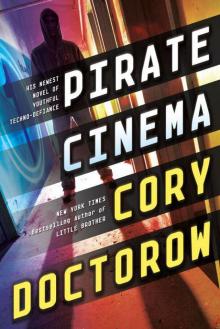 Pirate Cinema
Pirate Cinema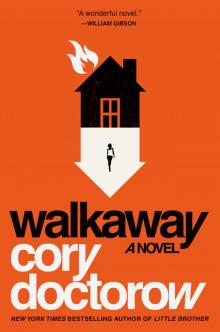 Walkaway
Walkaway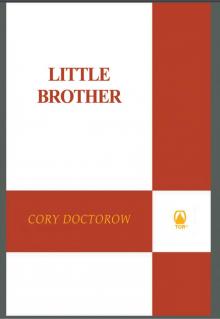 Little Brother
Little Brother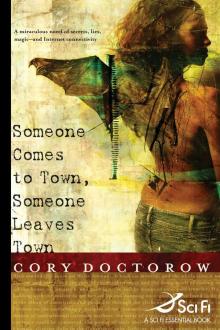 Someone Comes to Town, Someone Leaves Town
Someone Comes to Town, Someone Leaves Town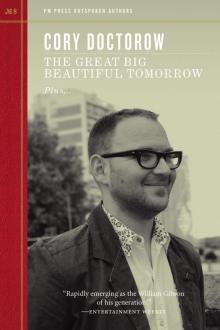 The Great Big Beautiful Tomorrow
The Great Big Beautiful Tomorrow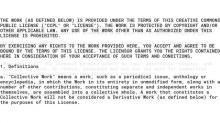 Super Man and the Bug Out
Super Man and the Bug Out For the Win
For the Win A Place so Foreign
A Place so Foreign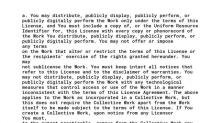 Shadow of the Mothaship
Shadow of the Mothaship Return to Pleasure Island
Return to Pleasure Island Party Discipline
Party Discipline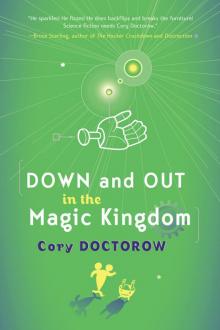 Down and Out in the Magic Kingdom
Down and Out in the Magic Kingdom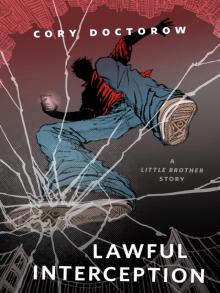 Lawful Interception
Lawful Interception Homeland
Homeland Eastern Standard Tribe
Eastern Standard Tribe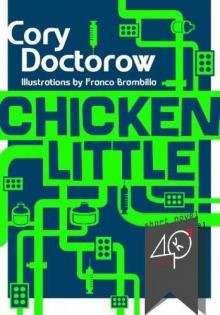 Chicken Little
Chicken Little I, Row-Boat
I, Row-Boat Makers
Makers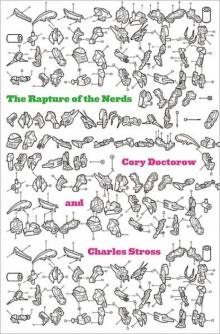 Rapture of the Nerds
Rapture of the Nerds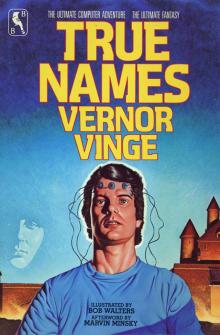 True Names
True Names